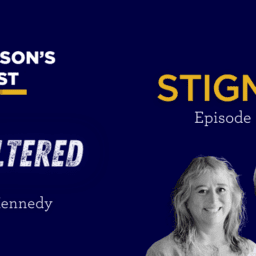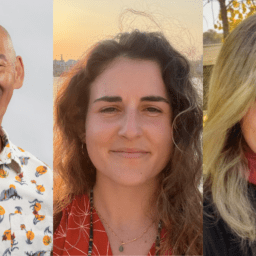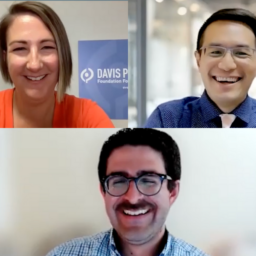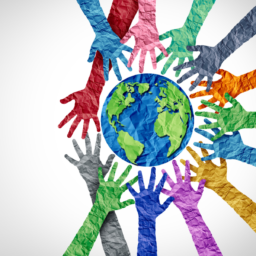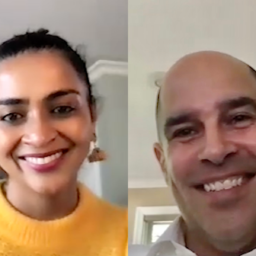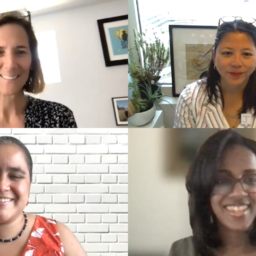Last week we invited you to our upcoming webinar on health disparities and Parkinson’s. If you weren’t able to join us, you can watch the recording here.
As we’ve begun talking more about this topic, we’ve realized that part of learning is understanding the shared language of this work. And while we don’t pretend to be experts, we’ve referenced definitions from those who are to get us started.
These are working definitions and are sure to evolve as we dig deeper into this work and understand their relevance to the Parkinson’s community. Still, as we share more information about health disparities and Parkinson’s, we thought they would be useful to those who are interested in learning with us.
Anti-racism – active participation in combating racism in all forms (Ibram X. Kendi)
Community health worker – a frontline public health worker who is a trusted member of and/or has an unusually close understanding of the community served (American Public Health Association)
Belonging – acceptance as a member or part; an affinity for a place or situation
Clinical competence – the ability to provide safe care in a manner that views a larger perspective of the patient; and an ability to accurately assess and critically think through the best options for care using evidence-based practice (Sigma Repository)
Cultural competence – the ability of an individual to understand and respect values, attitudes, beliefs, and mores that differ across cultures, and to consider and respond appropriately to these differences in planning, implementing, and evaluating health education and promotion programs and interventions (American Association for Health Education)
Cultural competence in healthcare – the ability of systems to provide care to patients with diverse values, beliefs, and behaviors, including tailoring delivery to meet patients’ social, cultural, and linguistic needs (Joseph R. Betancourt, Massachusetts General Hospital–Harvard Medical School, 2002)
Equity – each of us getting what we need to survive or succeed—access to opportunity, healthcare, networks, resources, and supports—based on where we are and where we want to go; the absence of disparities in health (Stanford Social Innovation Review)
Diversity – the range of human differences, including but not limited to race, ethnicity, gender, gender identity, sexual orientation, age, social class, physical ability or attributes, religious or ethical values system, national origin, and political beliefs (Ferris State University)
Health disparities – disparities that adversely affect groups of people who have systematically experienced greater social or economic obstacles to health based on their racial or ethnic group, religion, socioeconomic status, gender, mental health, cognitive, sensory, or physical disability, sexual orientation, geographic location, or other characteristics historically linked to discrimination or exclusion (Healthy People 2020)
Health inequities – differences in health status or in the distribution of health resources between different population groups, arising from the social conditions in which people are born, grow, live, work, and age (WHO)
Implicit bias – the tendency for stereotype-confirming thoughts to pass spontaneously through our minds
Inclusion – the promotion and sustainability of a sense of belonging where the inherent worth and dignity of all people are recognized; the value and practice of respecting the talents, beliefs, backgrounds, and ways of living of a group’s members
Microaggressions – the everyday slights, indignities, put-downs, and insults that members of marginalized groups experience in their day-to-day interactions with individuals who are often unaware that they have engaged in an offensive or demeaning way (Derald Wing Sue, Professor Columbia University)
Person-centered language – language that respects the dignity, worth, unique qualities, and strengths of every individual (University of Minnesota)
Public Health – the science of protecting and improving the health of people and their communities; work is achieved by promoting healthy lifestyles, researching disease and injury prevention, and detecting, preventing, and responding to infectious diseases (CDC Foundation)
Racism – a belief that race is the primary determinant of human traits and capacities and that racial differences produce an inherent superiority of a particular race; (Webster’s) “is both prejudice combined with social and institutional power. It is a system of advantage based on skin colour.” (Kennedy Mitchum)
Social Determinants of Health – the conditions in which people are born, grow, live, work, and age; include factors like socioeconomic status, education, neighborhood and physical environment, employment, and social support networks, as well as access to health care (Kaiser Family Foundation) (Also)
Stigma – the situation of the individual who is disqualified from full social acceptance (Erving Goffman, Sociologist, 1963)
Systemic racism – the historical and contemporary policies, practices, and norms that create and maintain white supremacy (Urban Institute)
White privilege – having greater access to power and resources than people of color [in the same situation] do (Francis E. Kendall). White privilege is both unconsciously enjoyed and consciously perpetuated. It is both on the surface and deeply embedded into American life. It is a weightless knapsack—and a weapon. (Tolerance.org)
White supremacy – the idea that white people and the ideas, thoughts, beliefs, and actions of white people are superior to People of Color and their ideas, thoughts, beliefs, and actions (ShowingUpForRacialJustice.org)
What now?
This post is a window into the conversation we’ve been having internally about the topic of health disparities in Parkinson’s for many years. What we’re excited about now is inviting our community to explore this with us as we all work to help everyone get the care they need to live well.
Will you join us?
Watch our first webinar on Health Disparities and Parkinson’s recorded on August 6. We learned from Dr. Claudia Martinez, Dr. Nicte Mejia, Dr. Nabila Dahodwala, Dr. Altaf Saadi, Jonathan Jackson, PhD, and David Leventhal to see this problem more clearly and take action so that ALL people with Parkinson’s – no matter their life circumstances, the color of their skin, their geography, their education, or their economic status – get access to the education, specialists, treatments, and care they deserve.
Watch the webinar recording here.
Want more?
Here are a few of the resources our staff has been digging into recently in case you’d like to check them out. This list is by no means exhaustive, but we hope it sparks some learning and curiosity. Have a resource or a definition you think we should add? Share it in the comment section of this post.
Race and Racism
Stamped: Racism, Antiracism, and You: A Remix of the National Book Award-winning Stamped from the Beginning (racism guide for young people)
Racist Is a Tough Little World (how the definition of racist has grown over time)
So You Want to Talk About Race (a guide to foster honest conversations about race and racism)
Stanford’s RaceWorks Toolkit (developed in collaboration with Stanford’s SPARQ the RaceWorks Toolkit is an open access, modular resource that educators, professionals, and facilitators can use to enhance their teaching and conversations about race)
TED Talk: How Racism Makes Us Sick (a talk that digs deep into how race and place affect health)
Equity
What the Heck Does Equity Mean? (why it has been so difficult to define the term)
Equity 101: Starting the Equity Conversation (webinar from the National Equity Project)
Implicit Bias and White Privilege
Curbing implicit bias: what works and what doesn’t (Q&A with psychologist Anthony Greenwald on implicit bias research and what works/doesn’t work to reduce bias)
Making people aware of their implicit bias doesn’t usually change minds. But here’s what does work. (PBS article exploring the implicit bias test and effectiveness of implicit bias training)
Project Implicit (implicit bias tests you can take to learn more about your own biases)
White Privilege: Unpacking the Invisible Knapsack (a 1989 work from Peggy McIntosh that helps shine a light on what white privilege looks like on a day to day basis)
Health Disparities
What Are Health Disparities and Health Equity? We Need to Be Clear (Public Health Report article with explicit definitions)
Social Determinants of Health – an introduction (a short video providing an overview of what SDoH are and how they relate to health inequities)
HealthyPeople.gov– Disparities (guidance and statistics from the NIH on health disparities)
TED Talk: What the US Health Care System Assumes About You (a talk that sheds light on the ways the health system falls short in understanding and accommodating people’s realities)
Podcast: Fighting Racial Inequity & Health Disparities (a podcast interview with Dr. Shreya Kangovi that explores how community health workers are a key component of changing how healthcare works for everyone)
How Physicians and Patients Can Bridge Cultural Divides (an article exploring physician bias, and cultural and language barriers that stand in the way of getting great care)
Blacks, Hispanics Less Likely to See Neurologist as Outpatient (a press release sharing outcomes of one study examining health disparities in Parkinson’s)
General
The Great Unlearn (a community of everyday human beings committed to curiosity for what is possible in the world. Monthly self-paced syllabi curated by Rachel Cargle)
TED Talk: Let’s end ageism (a talk from ageism advocate Ashton Applewhite)
Reconcile: Conflict Transformation for Ordinary Christians (International peace practitioner and mediator John Paul Lederach authored this book covering conflict transformation. He includes engaging stories, practical steps towards transforming conflict, and tools to better understand conflicts from interpersonal ones to those on a global scale.)



